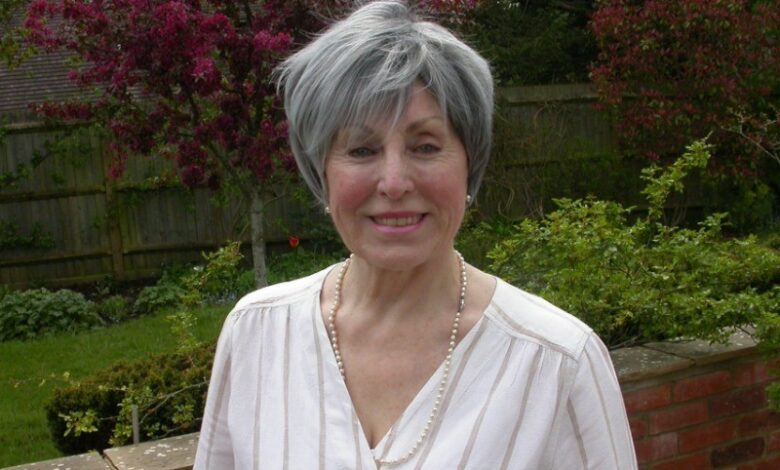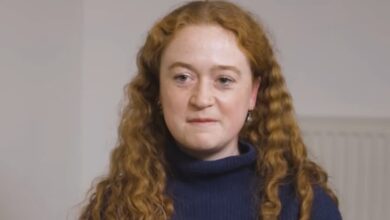The Remarkable Journey of Professor Patricia Wiltshire: A Forensic Botanist at the Forefront of Forensic Science

Professor Patricia Wiltshire is a name that has become synonymous with forensic botany and forensic ecology. Over her impressive career spanning decades, she has worked on over 250 criminal cases in the UK, including some of the most high-profile and sensitive cases. As a visiting professor at the University of Southampton and an expert consultant in the field, Wiltshire has not only made significant contributions to forensic science but has also shaped the way evidence is gathered and analyzed in criminal investigations.
This article delves into the life and achievements of Professor Patricia Wiltshire, exploring her background, career, and legacy as a forensic botanist.
Early Life and Education
Patricia Wiltshire’s journey into the world of forensic science was not a conventional one. Born in 1942 in Monmouthshire, South Wales, Wiltshire faced early challenges, including severe burns in a childhood accident that left her with lasting health complications. These challenges, however, did not deter her from her passion for science and learning. In fact, they ignited a spark that would later shape her career. As a child, Wiltshire spent much of her time reading encyclopedias while recovering, which fostered her lifelong interest in ecology and biology.
Her academic path began at King’s College London, where she pursued an honors degree in Botany, specializing in ecology. Her academic journey continued with further qualifications and research in the field of forensic science, culminating in a Ph.D. in Forensic Palynology, awarded by the University of Aberdeen in 2005.
Professional Career and Contributions
A Forensic Botanist’s Expertise
Professor Patricia Wiltshire is best known for her pioneering work as a forensic botanist, specializing in palynology (the study of pollen and spores) and forensic ecology. As a consultant, she has provided expert witness testimony for both the prosecution and defense in numerous criminal cases. Her expertise in forensic botany allows her to analyze microscopic and macroscopic plant material, soils, and sediments to reconstruct events, determine the time of death, and establish connections between people, objects, and places at crime scenes.
Wiltshire’s work involves examining various forms of evidence, including pollen, plant spores, fungal spores, and soil samples. These microscopic traces can reveal crucial information about a crime, such as the location where a body was deposited, the time of death, and even the movement of offenders.
Over the course of her career, she has been involved in many high-profile cases, including the Soham Murders, the Millie Dowler murder, the Sarah Payne case, and the Ipswich Prostitute serial killings. Her work is often vital in cold cases, where traditional evidence has been long lost or degraded. Wiltshire has also contributed to the understanding of environmental evidence in criminal investigations, helping authorities find buried bodies or objects and offering insight into the natural world’s connection to crime scenes.
A Collaborative Partnership with Her Husband
Professor Wiltshire’s success in the field of forensic botany has been supported by her collaboration with her husband, Professor David L. Hawksworth, a distinguished mycologist. Together, they form a formidable team of forensic experts, combining their knowledge of plants, fungi, and microscopic analysis to aid in criminal investigations. Their joint expertise has played a crucial role in solving numerous complex cases, and they continue to work together on both prosecution and defense cases.
The partnership between Wiltshire and Hawksworth extends beyond their work in forensic science. They have published several studies and research articles in their respective fields, contributing significantly to the scientific understanding of forensic ecology and botany.
Teaching and Mentoring Future Forensic Experts
In addition to her work as a forensic botanist and expert witness, Patricia Wiltshire has made significant contributions to education in forensic science. She has served as a visiting professor at the University of Southampton, where she teaches forensic ecology, botany, and palynology. She has also lectured extensively on forensic science in universities across the UK and abroad, including at King’s College London, Strathclyde University, and the University of Tennessee.
Her teaching career has had a lasting impact on the next generation of forensic scientists, inspiring countless students to pursue careers in forensic botany and ecology. Wiltshire is also known for her role in setting up and coordinating an M.Sc. course in Forensic Archaeological Science at University College London (UCL), where she lectured for several years before focusing exclusively on forensic casework.
A Legacy of Published Work
Throughout her career, Professor Wiltshire has been an avid researcher and contributor to the field of forensic science. She has published numerous articles, research papers, and studies on various topics related to forensic botany and ecology, including her work on the use of plants and fungi in criminal investigations.
Her memoir, Traces: The Memoir of a Forensic Scientist and Criminal Investigator, published in 2019, offers a detailed account of her career and the significant cases she has worked on. In this book, Wiltshire provides insight into her work as a forensic botanist, discussing the challenges and triumphs of using environmental evidence in criminal investigations.
Related Keywords: Personal Life and Background
Professor Patricia Wiltshire’s Family and Personal Life
While much of the focus in Patricia Wiltshire’s life has been on her professional achievements, her personal life has played a significant role in shaping her career. As mentioned earlier, Wiltshire is married to Professor David L. Hawksworth, with whom she shares both a personal and professional partnership. Together, they have worked on numerous cases, using their combined expertise to solve some of the UK’s most complex and high-profile criminal investigations.
There is limited public information about Patricia Wiltshire’s early family life or details about her first husband or children. Much of the public’s attention has centered on her professional accomplishments and the impact she has had on forensic science.
Overcoming Challenges: The Burns Incident
A pivotal moment in Patricia Wiltshire’s life occurred during her childhood when she suffered severe burns from an accident at the age of six. This traumatic event led to several health challenges throughout her life, including lung damage and repeated chest infections. Despite these setbacks, Wiltshire’s determination to succeed in her academic and professional life never wavered. Instead, her experience with illness and recovery instilled in her a passion for science and research, which ultimately led her to the field of forensic botany.
Conclusion
Professor Patricia Wiltshire’s career stands as a testament to the power of scientific inquiry and dedication to justice. As a forensic botanist, she has played a critical role in solving some of the most notorious crimes in the UK. Her expertise in forensic ecology and palynology has made her a sought-after expert witness and consultant, and her work continues to influence the field of forensic science. Through her teaching, publications, and contributions to criminal investigations, Wiltshire has left an indelible mark on the world of forensic botany.
Her legacy as a leading figure in forensic science will continue to inspire future generations of forensic experts, ensuring that the field evolves and adapts to the challenges of modern criminal investigations.



